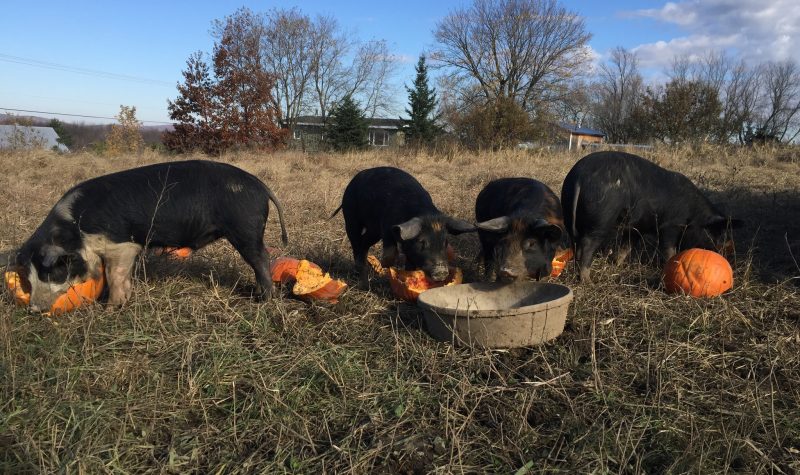An increase in inflation rates in Canada is having an impact on many. As a result, members of the federal Standing Committee on Agriculture and Agri-Food unanimously agreed to launch a study to examine the correlation between certain factors and food price inflation in particular.
The committee studies bills, government activities and expenditures, and issues related to Canada’s agriculture and agri-food industry.
The purpose of the study, kickstarted at the end of last year, is to table a report back to the federal government with recommendations as to how it can limit the impacts of inflation on Canadian citizens.
The Competition Bureau of Canada, an independent law enforcement agency that protects and promotes competition for the benefit of Canadian consumers and businesses, has also launched its “Retail Grocery Market Study.”
The study will examine three main questions:
- To what extent are higher grocery prices a result of changing competitive dynamics?
- What can we learn from steps that other countries have taken to increase competition in the sector?
- And how can governments lower barriers to entry and expansion to stimulate competition for consumers?
After speaking with both federal bodies, CIDI reached out to farmers and agricultural producers in Brome-Missisquoi to gain insight as to how inflation has been impacting their daily operations.
Nicolas Gaudette is the owner of Selby Farm, a small pastured pig operation in Dunham, alongside his wife Laurence Levasseur. He is also a member of the Syndicat de l'UPA Brome-Missisquoi, a union that represents farmers in the region.
He speaks on the challenges Selby Farm is facing as a result of inflation and how the situation has become a concern for farmers across the region.
“Farmers get it on all ends in terms of this because weather changes are huge in farming, for whatever you do, and then inflation kind of kept in recently. (…) Our fuel bill for tractors, well fuel went up almost 55 per cent from what it did the year prior. Our fuel bill is almost more than double now,” Gaudette highlighted. “We’re not a huge consumer of fuel, but in perspective, and by comparison, it’s a huge expense.”
Gaudette explained that Selby Farm depends on grain to feed its livestock, but in 2020, when the pandemic hit, China was buying a lot of corn and soy from Canada and it created a “scare.” As a result, these farmers turned to other alternatives.
“Everybody that fed corn and soy went towards wheat, barley, and rye to substitute for the higher prices. Well, that drove those prices up so we ended up getting higher prices for our feed, which used to be not as sought after as corn and soy. That kind of stayed. It fluctuates, but those prices stayed high,” he said. “Then butchering costs went up because they’re having labor issues, materials, minerals. (…) I’m assuming some minerals come from Europe, I’m gathering Russia as well, so there may be some minerals in there that went up because of that, but I haven’t gotten a straight answer from my supplier yet.”
Pretty much everything that Gaudette and Levasseur use on the farm, like plumbing, electricity, and other things, "everything went up more than 50 per cent," noted Gaudette.
“But obviously we can’t raise our sales 50 per cent. We can’t go from selling a pound of ground pork for 5$ to 10$. It’s one of those things that’s hard to juggle and we juggle with it quite a bit. We hesitated on raising the prices because we didn’t want to scare off our precious clientele. We’ve been building a clientele for the past ten years,” mentioned Gaudette. “(…) We figured less money is better than no money, but it reached a point where it didn’t even make sense to operate the farm anymore. In 2022, we said we have to raise our prices, we weren’t even making ends meet.”
Gaudette told CIDI that he and Levasseur have to reorganize their operations, adjust production, and make certain sacrifices to “better manage” the inflation Selby Farm is facing.
Part of this reorganization includes producing their own grain on a second farm they purchased with friends in Saint-Armand, having more events at the farm, looking towards agro-tourism, and diminishing the animal count to maximize revenue.
“We can’t supply a whole herd as it is now. Diminishing it a bit and maybe doing a bit more value added products is kinda what we are going towards; having a bit more processed products in terms of sausages, cured meats, and all of that,” explained Gaudette. “That’s what we are going towards to have a bit more to offer in products and really maximizing the yield off an animal. (…) We’re really going to focus on that to try and yield more money out of a pig as oppose to selling it more raw.”
Having worked alongside other farmers to preserve and protect agriculture in the region as a member of the Syndicat de l'UPA Brome-Missisquoi, Gaudette emphasized that most farms are dealing with their respective challenges when it comes to inflation.
“Small farms have their issues, medium farms have their issues, and large farms have their issues. Nobody is spared on that end. (…) Depending on the scale, we all kinda have our issues, but the bigger issue of inflation affects all the farmers pretty much equally in their own way,” he said.
For more information on Selby Farm, visit the Facebook page.
For more information about the Syndicat de l'UPA Brome-Missisquoi, visit the website.
To hear more on how inflation is impacting our local farmers, listen to the full interview below:


